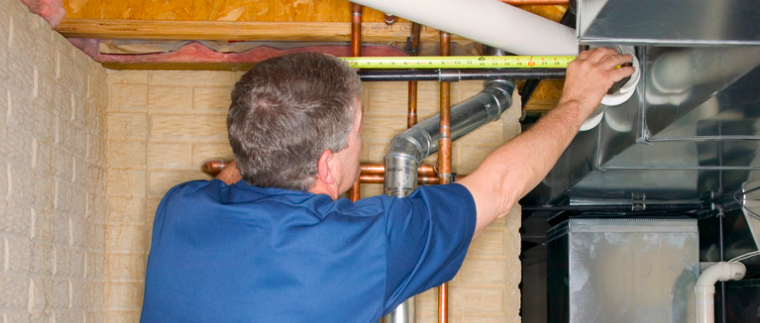
So you’re thinking about putting in an offer on your dream home and currently deciding what conditions to add to your offer. Maybe there is a competitive offer situation and you’re considering – do I really need a home inspection?
Experts will say YES. Home inspections are crucial to avoid unexpected and potential costly issues in your home down the road. Waiving a home inspection is taking a huge risk as a buyer. However, in competitive markets its not always that easy. Offers made with conditions, like inspections, are often seen as weaker than unconditional offers and sometimes this means buyers need to be extra aggressive in order to win the home. Whatever you decide as a buyer, don’t be pressured into forgoing a home inspection as it could have major financial ramifications. It’s important to know what value home inspections provide so you can be prepared for what may happen without one.
Keeping this in mind, we have broken down what to expect from your home inspection.
What does a home inspector do?
A home inspector will evaluate the interior and exterior of a structure. With a good inspector this should include the following:
– Check all electrical outlets, switches and the fuse/breaker panel.
– Flush toilets and turn on faucets to make sure they work and to determine water pressure.
– Open and close all the windows.
– Check the floors, walls and ceilings for any defects.
– Check the basement or foundation for any water leakage.
– Inspect the heating and cooling systems.
– Check out the attic and any crawl spaces to assess insulation.
– Examine in the closets and under the stairs.
– Inspect chimneys and flues (if applicable).
– Inspect roof and eavestroughs.
– Look around the entire exterior of the building structure looking for signs of weather damage.
– Look for any issues with exterior decks and railings.
– Inspect the foundation looking for cracks or other issues.
– Check the grading around the foundation.
What does a home inspector NOT do?
Home inspectors can only see what is visible on the outside. They are not able to put holes in walls or rip up floors, so in many cases they can only give you their best guess about what lies beneath. This means some things like wiring inside the walls may not be able to be inspected.
Home inspectors also only have a limited scope and may recommend specialists come in if they find an issue with an area of the home. For example, they may advise having a plumber inspect the bathroom if they see evidence of water not draining properly.
What should you expect to receive from a home inspector?
Home inspectors should provide you with a detailed report after finishing their inspection. This may include pictures as well. After your home inspection you should understand any repairs that should be completed immediately on the home, any detrimental issues, and potential issues that could come up in the future. This will help you to assess whether you would still like to purchase the home, if you should try to negotiate some repairs or compensation from the seller, or if you are satisfied with the condition of the home at your current purchase offer.
You should also expect your home inspector to be open to any questions you may have and to be willing to show and explain to you their findings during the home inspection.
How long does a home inspection take?
Home inspections typically take anywhere from one to three hours depending on the size of the home. They can range in price from $300-$600+.
Other home inspection tips
– Be present for the home inspection! It’s important to be able to see what the inspector is talking about, and ask any questions you may have. It’s also a great opportunity to take your own pictures of things the inspector is pointing out to you.
– Don’t forget the appliances! Have your inspector run things like the washer/dryer and dishwasher while they are completing the inspection to ensure everything is working as expected.
– Even if you are buying a new build, a home inspection is still a very good idea!
– Ensure you read the entire report from the inspector – not just the summary. Although the most crucial findings will be listed in the summary, there may be important information within the report that you need to know about the home as the future owners.
How to make a strong offer without waiving the inspection
If you are uncomfortable making an offer without a home inspection condition, consider what else you can do to make your offer stronger and appealing to sellers. Here are a few suggestions:
– Be fully pre-approved. Having a mortgage pre-approval letter from a lender in hand demonstrates not only that you’re serious, but that you’ll be able to get the financing to close the deal.
– Offer a faster closing, and/or meet the seller’s preferred closing date.
– Make a larger deposit to show you are serious about the home purchase.
– Consider what other conditions you may be willing to remove from the offer to make it stronger.
– Keep the length of your requested inspection period short.
– Consider specifying in the condition that the seller is not required to make repairs or offer price reduction credits. This will enable you to have the inspection done and keep the right to cancel the deal if you don’t like what is found, while also making it clear that the seller is not going to change the property or the deal as a result of inspections.
How to find a home inspector
It’s important to do your research and find a qualified home inspector that will meet your expectations. The Bōde Prō Marketplace is a great place to start your search and has vetted, highly rated, home service professionals in your local area.
Why sell your own home with Bōde?







